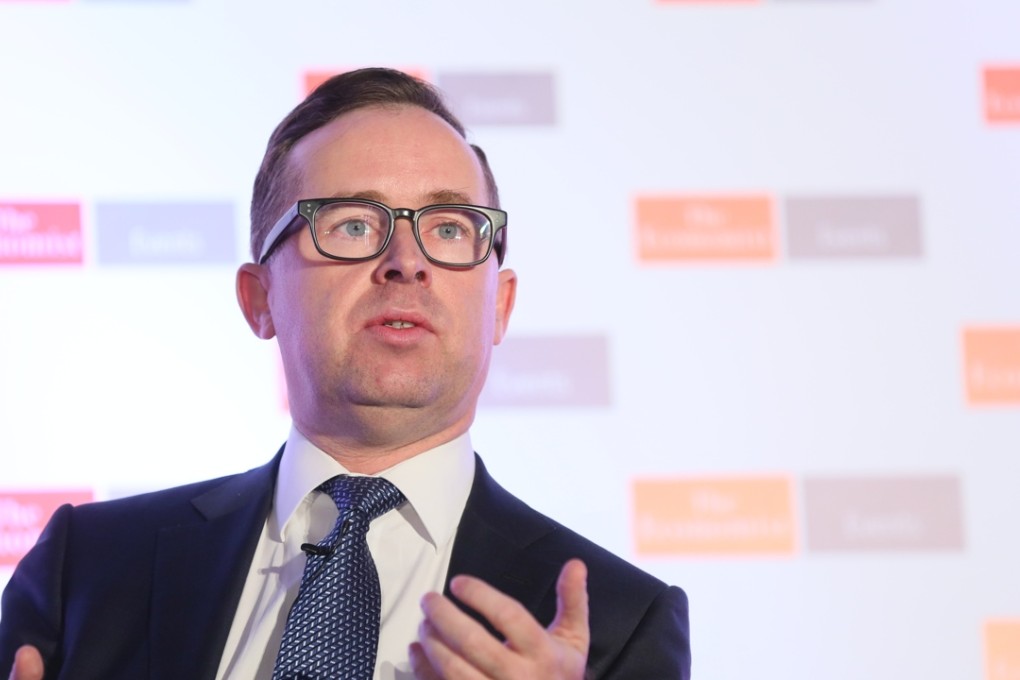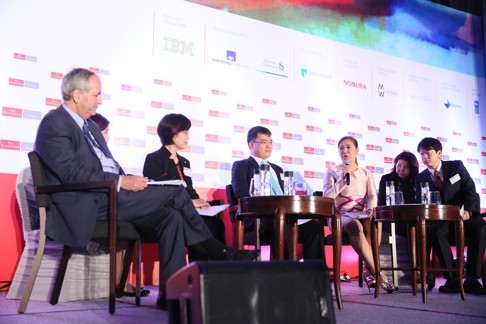Come out of the closet, Qantas’ gay CEO Alan Joyce urges business leaders
People need to realise they know people who are lesbian, gay, bisexual or transgender, Irishman tells Hong Kong conference held to break business sector’s silence on sexual diversity and weigh costs of discrimination

The world would be a more tolerant and inclusive place if, like him, LGBT business leaders were open about their sexual orientation, Alan Joyce, the chief executive officer of Qantas Airways, told a Hong Kong audience on Thursday.
Speaking at the Economist Group’s rolling, 24-hour global conference on inclusion for lesbians, gays, bisexuals and transgender people, Joyce, who is gay, said: “It is very critical that we make sure people recognise that they know LGBT people.”
His call, though, comes amid an upsurge in homophobia in East Asia and with new data showing that many Asian executives still keep their heads in the sand when it comes to sexual orientation and gender identity.

As an Irishman, Joyce said he was pleased to see Ireland vote in support of same-sex marriage last year, an outcome he put down to growing awareness among the heterosexual majority that they knew people in their family, at work and among their circle of friends who were LGBT.
There should be more people like Apple’s Tim Cook
Called “Pride and Prejudice”, the Economist event began in Hong Kong on Thursday before moving on to London and, later, New York. Daniel Franklin, executive editor of The Economist, said the event was an attempt to “to break the business sector’s silence” on the issue and to look at the economic and human costs of discrimination.